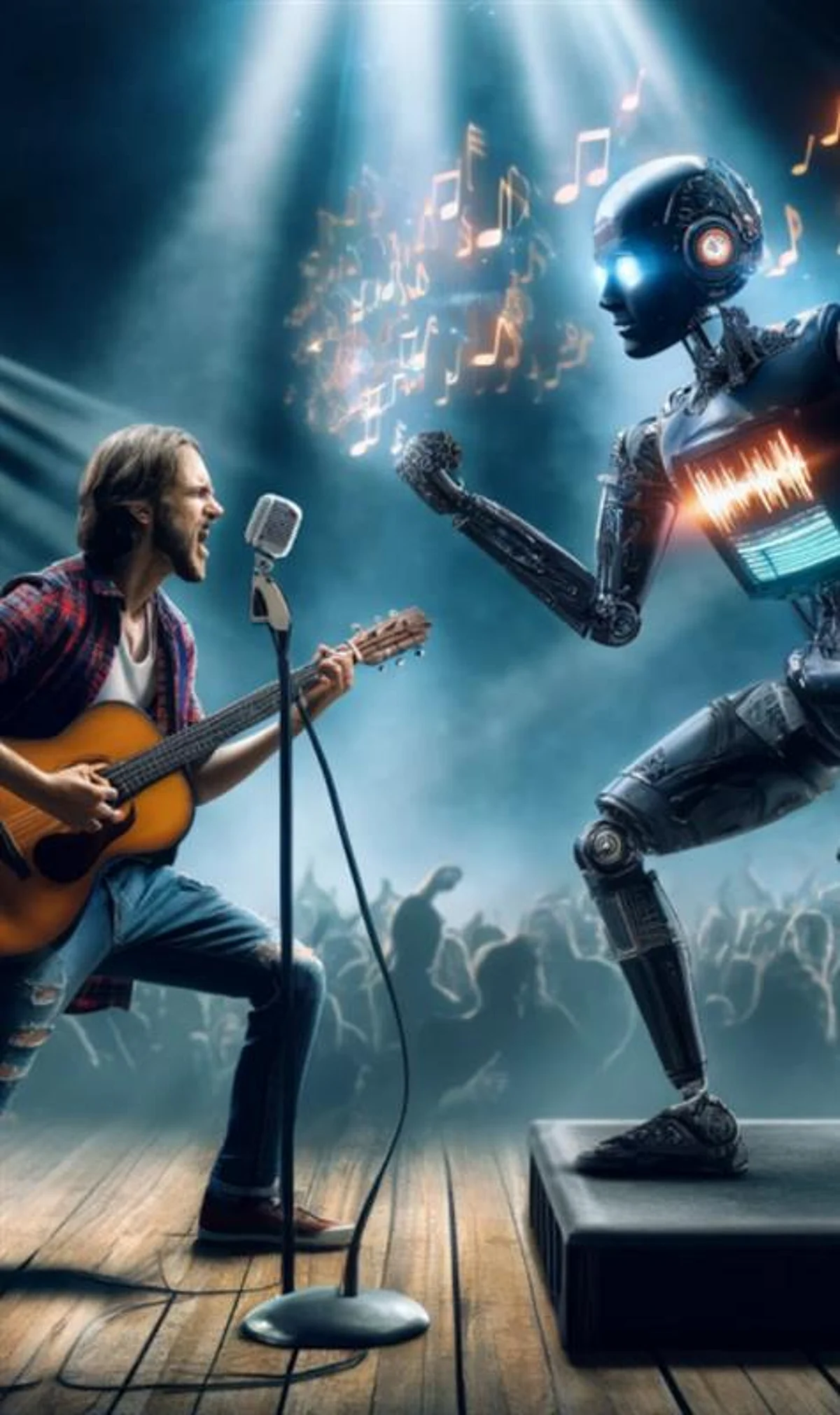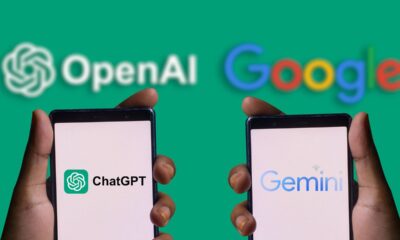Technology
AI Music Creators and Human Artists Clash in 2025 Showdown

The music industry is experiencing a transformative moment as AI music creators and human artists compete for prominence in 2025. With advancements in artificial intelligence technology, platforms like Spotify and Universal Music Group are integrating AI-generated music alongside traditional human compositions. This clash raises questions about creativity, emotional depth, and the future of collaboration in music.
The emergence of AI music creators has brought about significant changes in how music is produced and consumed. Algorithms developed by companies such as OpenAI can analyze vast amounts of data to generate songs that mimic popular styles and trends. For instance, AI can create a track in minutes that might take a human artist days or weeks to compose. This speed could potentially reshape the landscape of music production.
Yet, the debate about whether AI can replicate the emotional nuance found in human-created music continues. Many argue that while AI can produce technically proficient compositions, it lacks the human experience that imbues music with emotional resonance. According to research from The Royal College of Music, a substantial portion of listeners still prefer music created by human artists for its authenticity and ability to convey complex emotions.
The financial implications of this competition are also noteworthy. The global music industry is projected to exceed $1 billion in revenue from AI-generated music by 2025, according to a report from Billboard. This figure underscores the growing acceptance and integration of AI in the mainstream music scene. Industry giants are investing heavily in AI technology to harness its capabilities while also promoting their human talent.
Collaboration between AI and human artists is gaining traction. Some musicians are utilizing AI tools to enhance their creative process. For example, they can use AI-generated melodies as a foundation to build upon, blending machine efficiency with human emotion. This hybrid approach has led to innovative soundscapes that are attracting a wider audience.
In London, a series of live events have showcased AI and human collaborations, drawing attention from both the media and music enthusiasts. These performances highlight the potential for AI to complement rather than replace human creativity. Attendees have expressed excitement about witnessing the synergy between technology and artistry, indicating a shifting perception of AI in the creative realm.
As the competition evolves, the music industry must navigate challenges related to copyright and ownership. Questions about who owns the rights to AI-generated music are becoming increasingly pressing. Legal frameworks will need to adapt to address these emerging issues, ensuring that both human and AI creators receive fair recognition and compensation for their work.
Looking ahead, the relationship between AI music creators and human artists will likely continue to evolve. Both sides bring unique strengths to the table, and as technology advances, so too will the methods of music creation. The outcome of this competition may redefine not only the music industry but also the way audiences engage with sound and emotion in the years to come.
In conclusion, the clash between AI music creators and human artists is reshaping the music landscape in 2025. While AI offers speed and efficiency, the emotional depth of human artistry remains irreplaceable. As both entities explore collaborative possibilities, the future of music promises to be a dynamic blend of technology and artistry.
-

 Technology5 months ago
Technology5 months agoDiscover the Top 10 Calorie Counting Apps of 2025
-

 Technology2 weeks ago
Technology2 weeks agoOpenAI to Implement Age Verification for ChatGPT by December 2025
-

 Health3 months ago
Health3 months agoBella Hadid Shares Health Update After Treatment for Lyme Disease
-

 Health3 months ago
Health3 months agoErin Bates Shares Recovery Update Following Sepsis Complications
-

 Health3 months ago
Health3 months agoAnalysts Project Stronger Growth for Apple’s iPhone 17 Lineup
-

 Technology5 months ago
Technology5 months agoDiscover How to Reverse Image Search Using ChatGPT Effortlessly
-

 Technology3 months ago
Technology3 months agoElectric Moto Influencer Surronster Arrested in Tijuana
-

 Technology2 months ago
Technology2 months agoDiscover 2025’s Top GPUs for Exceptional 4K Gaming Performance
-

 Technology5 months ago
Technology5 months agoMeta Initiates $60B AI Data Center Expansion, Starting in Ohio
-

 Technology5 months ago
Technology5 months agoRecovering a Suspended TikTok Account: A Step-by-Step Guide
-

 Health5 months ago
Health5 months agoTested: Rab Firewall Mountain Jacket Survives Harsh Conditions
-

 Lifestyle5 months ago
Lifestyle5 months agoBelton Family Reunites After Daughter Survives Hill Country Floods





















